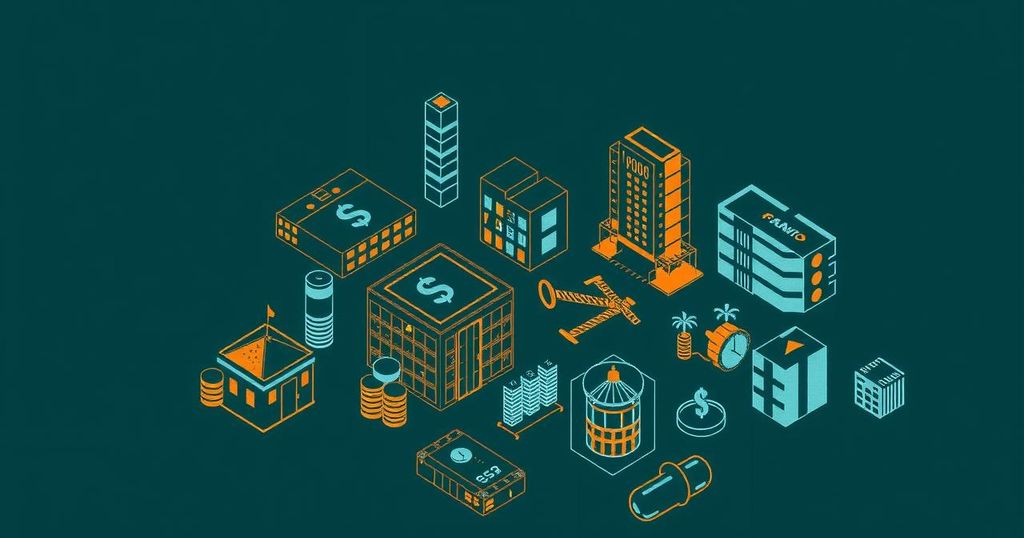IMF Advocates for Treasury Single Account and Tax Reforms in New DRC Financing Deal
The IMF has reached a new agreement to provide the DRC with $2.87 billion, contingent on implementing a Treasury Single Account and tax reforms. The DRC has been slow to adopt this essential measure since 2019, despite its goals for financial transparency and improved resource management. The reforms are necessary to access critical funding to address the country’s social and economic issues.
The International Monetary Fund (IMF) has announced a new financial agreement to provide the Democratic Republic of Congo (DRC) with $2.87 billion over the next three years, contingent upon the country implementing critical reforms. One of the primary conditions set forth by the IMF is the establishment of a Treasury Single Account (TSA), aimed at consolidating the numerous government accounts to enhance financial transparency and efficiency. Despite being a requirement since 2019, the DRC has failed to expedite the TSA’s implementation, which is essential for better management of public resources. Under this updated agreement, the DRC is set to receive $1.77 billion from the IMF’s Extended Credit Facility (ECF) alongside an unprecedented $1.1 billion from the Resilience and Sustainability Facility, focused on climate initiatives. To maintain access to these funds, the DRC government is required to swiftly roll out the TSA while also enacting significant tax reforms, which include increasing domestic revenue through streamlined VAT billing, reducing inefficient tax exemptions, and curbing tax evasion particularly related to mineral exports. Calixte Ahokpossi, the IMF mission chief for the DRC, emphasized the necessity for stricter adherence to public expenditure procedures as a critical priority, stating, “A key priority under the planned ECF-supported programme is to ensure stricter adherence to the public expenditure chain procedures.” Currently, the DRC’s government operates 3,625 accounts, which include various ministries and special accounts, contributing to financial mismanagement. The transition to a TSA is projected to enhance budget credibility and fiscal stability, similar to reforms successfully implemented in other countries within the region, such as Uganda and Tanzania. The IMF has noted that while the Congolese government has signed a decree defining TSA structures in May 2023, substantial progress remains to be made in its establishment. Additionally, the IMF is calling for decentralizing spending authorization to mitigate economic shocks and foster social investment. The overarching objective of the new funding scheme is to aid the DRC in addressing its pressing social needs while stabilizing peace and security in troubled regions. Moreover, the funds are expected to alleviate the rising cost of living and bolster investment in key sectors, including infrastructure and agriculture.
The Democratic Republic of Congo faces significant economic challenges, and the IMF’s assistance is intended to facilitate necessary fiscal reforms. Central to these reforms is the introduction of a Treasury Single Account (TSA) to consolidate government accounts and eliminate financial fragmentation. Established as a goal for the DRC since 2019, the urgency for its implementation has intensified due to external funding requirements from the IMF. The DRC’s financial infrastructure suffers from inefficiency and a lack of transparency, prompting the IMF to demand sweeping tax and governance reforms as prerequisites for continued financial support.
In summary, the IMF’s new $2.87 billion deal with the DRC underscores the necessity for comprehensive financial reforms, primarily the implementation of a Treasury Single Account and various tax reforms. By consolidating government accounts and enhancing fiscal management, the DRC aims to improve transparency and better manage its public resources. The stipulated reforms are critical for the nation’s economic recovery, facilitating domestic revenue generation while addressing pressing socio-economic challenges.
Original Source: www.theeastafrican.co.ke




Post Comment